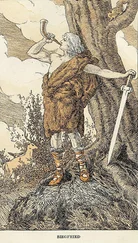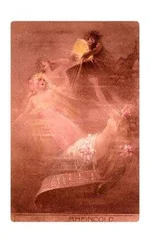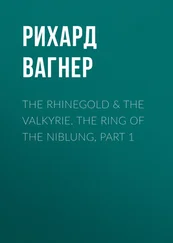Рихард Вагнер - My Life. Volume 2
Здесь есть возможность читать онлайн «Рихард Вагнер - My Life. Volume 2» — ознакомительный отрывок электронной книги совершенно бесплатно, а после прочтения отрывка купить полную версию. В некоторых случаях можно слушать аудио, скачать через торрент в формате fb2 и присутствует краткое содержание. Жанр: Биографии и Мемуары, foreign_home, music_dancing, music_dancing, foreign_antique, на английском языке. Описание произведения, (предисловие) а так же отзывы посетителей доступны на портале библиотеки ЛибКат.
- Название:My Life. Volume 2
- Автор:
- Жанр:
- Год:неизвестен
- ISBN:нет данных
- Рейтинг книги:3 / 5. Голосов: 1
-
Избранное:Добавить в избранное
- Отзывы:
-
Ваша оценка:
- 60
- 1
- 2
- 3
- 4
- 5
My Life. Volume 2: краткое содержание, описание и аннотация
Предлагаем к чтению аннотацию, описание, краткое содержание или предисловие (зависит от того, что написал сам автор книги «My Life. Volume 2»). Если вы не нашли необходимую информацию о книге — напишите в комментариях, мы постараемся отыскать её.
My Life. Volume 2 — читать онлайн ознакомительный отрывок
Ниже представлен текст книги, разбитый по страницам. Система сохранения места последней прочитанной страницы, позволяет с удобством читать онлайн бесплатно книгу «My Life. Volume 2», без необходимости каждый раз заново искать на чём Вы остановились. Поставьте закладку, и сможете в любой момент перейти на страницу, на которой закончили чтение.
Интервал:
Закладка:
I shall never forget my impressions of my journey through the continually descending valley. I was particularly astonished at the southern vegetation which suddenly spreads out before one on climbing down from a steep and narrow rocky pass by which the Tosa is confined. I arrived at Domodossola in the afternoon in a blaze of sunshine, and I was reminded here of a charming comedy by an author whose name I have forgotten, which I had once seen performed with a refinement worthy of Platen, and to which my attention had been drawn by Eduard Devrient in Dresden. The scene of the play was laid in Domodossola, and described exactly the impressions I myself received on coming down from the Northern Alps into Italy, which suddenly burst upon one's gaze. I shall also never forget my first simple, but extremely well-served, Italian dinner. Although I was too tired to walk any further that day, I was very impatient to get to the borders of Lake Maggiore, and I accordingly arranged to drive in a one-horse chaise, which was to take me on the same evening as far as Baveno. I felt so contented while bowling along in my little vehicle that I reproached myself for want of consideration in having rudely declined the offer of company which an officer passing through the Vetturino made me by means of the driver. I admired the daintiness of the house decorations and the pleasant faces of the people in the pretty villages I passed through. A young mother, strolling along and singing as she spun the flax, with her baby in her arms, also made a never-to-be-forgotten impression on me. Soon after sunset I caught sight of the Borromean Islands rising gracefully out of Lake Maggiore, and again I could not sleep for excitement at the thought of what I might see on the following day. The next morning the visit to the islands themselves delighted me so much that I could not understand how I had managed to come upon anything so charming, and wondered what would result from it. After stopping only one day, I left the place with the feeling that I had now to flee from something to which I did not belong, and went round Lake Maggiore, up past Socarno, to Bellinzona, where I was once again on Swiss soil; from there I proceeded to Lugano, intending, if I followed out my original plan of travel, to stay there some time. But I soon suffered from the intense heat; even bathing in the sun-scorched lake was not refreshing. Apart from the dirty furniture, which included the Denksopha ('thinking sofa') from the Clouds by Aristophanes, I was sumptuously lodged in a palatial building, which in the winter served as the government house of the canton of Tessin, but in the summer was used as a hotel. However, I soon fell again into the condition that had troubled me so long, and prevented me from taking any rest, owing to my extreme nervous strain and excitement, whenever I felt disposed to idle pleasantly. I had taken a good many books with me, and proposed to entertain myself with Byron. Unfortunately it required a great effort on my part to take any pleasure in his works, and the difficulty of doing so increased when I began to read his Don Juan. After a few days' time I began to wonder why I had come, and what I wanted to do here, when suddenly Herwegh wrote saying that he and several friends intended to join me at this place. A mysterious instinct made me telegraph to my wife to come also. She obeyed my call with surprising alacrity, and arrived unexpectedly in the middle of the night, after travelling by post-chaise across the St. Gotthard Pass. She was so fatigued that she at once fell into a sound sleep on the Denksopha, from which the fiercest storm that I ever remember failed to awaken her. On the following day my Zurich friends arrived.
Herwegh's chief companion was Dr. Francois Wille. I had learned to know him some time before at Herwegh's house: his chief characteristics were a face much scarred in students' duels, and a great tendency to witty and outspoken remarks. He had recently been staying near Meilen on the Lake of Zurich, and he often asked me to visit him there with Herwegh. Here we saw something of the habits and customs of a Hamburg household, which was kept up in a fairly prosperous style by his wife, the daughter of Herr Sloman, a wealthy shipowner. Although in reality he remained a student all his life, he had made himself a position and formed a large circle of acquaintances by editing a Hamburg political newspaper. He was a brilliant conversationalist, and was considered good company. He seemed to have taken up with Herwegh with the object of overcoming the latter's antipathy to Alpine climbing, and his consequent reluctance to undertake it. He himself had made preparations to walk over the Gotthard Pass with a Professor Eichelberger, and this had made Herwegh furious, as he declared that walking tours were only permissible where it was impossible to drive, and not on these broad highways. After making an excursion into the neighbourhood of Lugano, during which I got heartily sick of the childish sound of the church bells, so common in Italy, I persuaded my friends to go with me to the Borromean Islands, which I was longing to see again. During the steamer trip on Lake Maggiore, we met a delicate-looking man with a long cavalry moustache, whom in private was humourously dubbed General Haynau, and the distrust with which we affected to treat him was a source of some amusement to us.
We soon found that he was an extremely good-natured Hanoverian nobleman, who had been travelling about Italy for some time for pleasure, and who was able to give us very useful information concerning intercourse with the Italians. His advice was of great service when we were visiting the Borromean Islands, where my acquaintances parted from my wife and myself to travel back by the nearest route, whereas we intended proceeding further across the Simplon and through Le Valais to Chamounix.
From the fatigue my tour had so far occasioned me, I felt that it would be some time before I started on a similar one again. I was therefore eager to see what was best worth seeing in Switzerland as thoroughly as possible now that I had the chance. Moreover, I was just then, and indeed had been for some time, in that impressionable humour from which I might anticipate important results to myself from novel scenery, and I did not like to miss Mont Blanc. A view of it was attended with great difficulties, amongst which may be mentioned our arrival by night at Martigny, where, owing to the crowded state of the hotels, we were everywhere refused accommodation, and it was only on account of a little intrigue between a postillion and a maidservant that we found clandestine shelter for the night in a private house from which the owners were absent.
We dutifully visited the so-called Mer de Glace in the Val de Chamounix and the Flegere, from which I obtained a most impressive view of Mont Blanc. However, my imagination was less busied with the ascent of that peak than with the spectacle I beheld when crossing the Col des Geants, as the great elevation that we attained did not appeal to me so much as the unbroken and sublime wildness of the latter. For some time I cherished the intention of undertaking just one more venture of the kind. While descending the Flegere, Minna had a fall and sprained her ankle; the consequence of this was so painful as to deter us from any further adventures. We therefore saw ourselves forced to hasten on our journey home via Geneva. But even from this more important and grander expedition, and almost the only one I had ever undertaken purely for recreation, I returned with a strangely unsatisfied feeling, and I could not resist the longing for something decisive in the distance, that would give a fresh direction to my life.
On reaching home I found announcements of a new and quite different turn in my destiny. These consisted of inquiries and commissions from various German theatres anxious to produce Tannhauser. The first to apply was the Schwerin Court Theatre. Rockel's youngest sister, who afterwards married the actor Moritz (whom I had known from my earliest youth), had now come to Germany as a youthful singer from England, where she had been educated. She had given such an enthusiastic account of the impression produced upon her by Tannhauser at Weimar, to an official at the theatre there named Stocks, who held the position of treasurer, that he had studied the opera most assiduously, and had now induced the management to undertake to produce it. The theatres at Breslau, Prague, and Wiesbaden soon followed; at the last of these my old friend Louis Schindelmeisser was acting as conductor. In a short time other theatres followed suit; but I was most astonished when the Berlin Court Theatre made inquiries through its new manager, Herr von Hulsen. From this last incident I felt justified in assuming that the Crown Princess of Prussia, who had always had a friendly feeling towards me, fostered by my faithful friend Alwine Frommann, had again been intensely interested by the performance of Tannhauser at Weimar, and had given the impetus to these unexpected developments.
Читать дальшеИнтервал:
Закладка:
Похожие книги на «My Life. Volume 2»
Представляем Вашему вниманию похожие книги на «My Life. Volume 2» списком для выбора. Мы отобрали схожую по названию и смыслу литературу в надежде предоставить читателям больше вариантов отыскать новые, интересные, ещё непрочитанные произведения.
Обсуждение, отзывы о книге «My Life. Volume 2» и просто собственные мнения читателей. Оставьте ваши комментарии, напишите, что Вы думаете о произведении, его смысле или главных героях. Укажите что конкретно понравилось, а что нет, и почему Вы так считаете.










